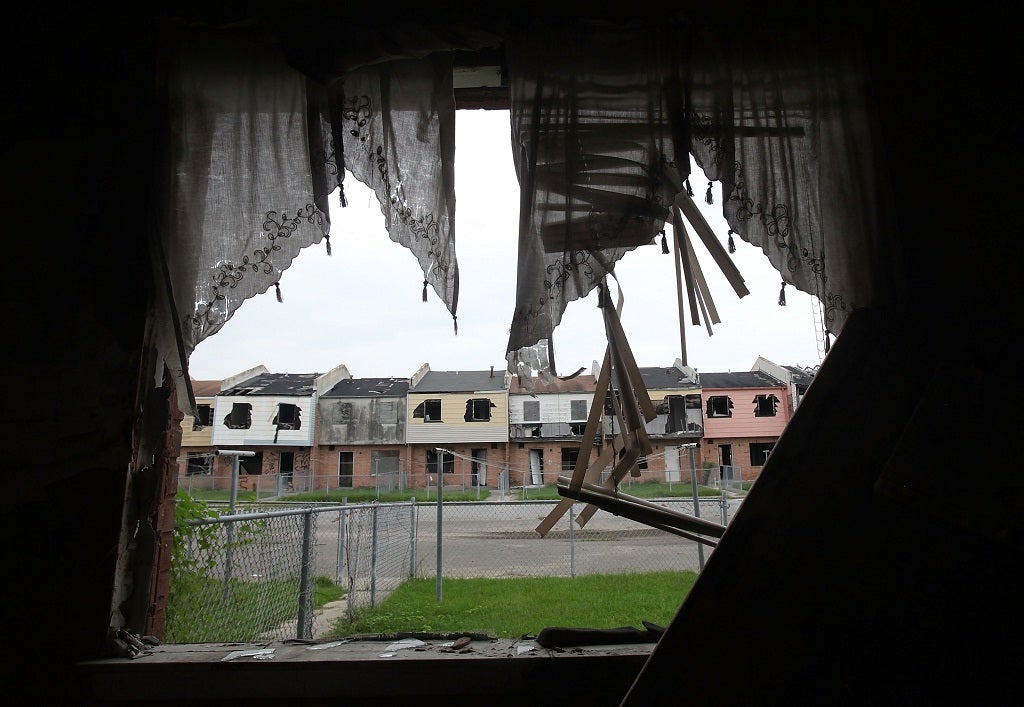Disaster tourism: how bus trips to the scene of Hurricane Katrina make profit from loss
You can understand why these tours exist - and even their appeal - but at their worst they're stunningly callous. No wonder residents are fighting back.

Planning your next holiday? If it’s a cultural experience you’re after, forget Athens or Istanbul, Grey Line Tours suggests a visit to the scene of Hurricane Katrina “the most devastating natural disaster on American soil!” In between choosing souvenirs, you can take a quick whizz through the streets of the most devastated areas of New Orleans and watch surviving citizens pick their way through the rubble from the comfort of your air conditioned bus.
I’m exaggerating, slightly, but as news last week emerged that New Orleans’ residents and city officials were hitting back at tour operators who have, since shortly after Hurricane Katrina, carried out tours of the worst hit areas of the city, it elicited what I imagine to be a pretty common gut response. Tourism that profits from the struggle and loss of others seems intuitively distasteful, not least because the tour buses have been criticised for blocking roads for the residents.
The intersection of tourism and human tragedy is an uncomfortable one. Hurricane Katrina tours are in fact just one example of the growing appetite for ‘disaster tourism’, the most sinister corner of a wider market for poverty tourism that appears to signal a commodification of the culture shock that has been branded ‘poverty porn’.
While the market is mostly crowded with slum tours, a quick Google search for disaster tourism brings up ‘Disaster Tours’, a company with a marketing strategy so lacking in tact it verges on the surreal. It boasts “we guarantee your holiday will be a complete disaster” and offers an array of tours including “bespoke” disasters and Hudson river plane crash re-enactments that justify themselves with the claim they facilitate “a profoundly educational experience that may well scar you for life”.
It is, however, an issue ripe with opportunity for flaunting moral superiority. There is a sense that it is just a bit too easy to criticise. Tours of the 9 Ward in New Orleans may well tap into a natural human curiosity to see the shocking, even - and perhaps especially - when it involves human tragedy. While it makes me feel slightly uncomfortable, I can see the appeal.
There is however a difference between recognising the human tendency to fetishize the shocking and an industry that uses it as currency.
Ethical complexities aside, Hurricane Katrina tours fail to redeem themselves on either economic or educational grounds. Undoubtedly, the sequence of planning and organisational mismanagement around the hurricane and the following response from federal government is a story that needs to be told.
Unfortunately, the tours dramatize the event in a way only appropriate when something feels officially ‘historical’, ultimately rendering it trivialised. Rather than move from passive news consumption to active engagement with the issue, tourists peer through windows and reconfirm the roles of spectator and object. Tourists are strictly told that they will not leave the bus during these tours. This caveat, supposedly to ensure respect for the residents, appears rather to emphasise the voyeuristic nature of the enterprise and confirm it as something more akin to consumption than education.
It is difficult then to understand how tourists hear a “local’s perspective” of the event when there is no opportunity for interaction and indeed, little evidence of community consent. It’s also hard to imagine how you can really understand the full complexities of New Orleans’ situation – failures of political will, unemployment, poverty, homelessness - and the deep reverberations it will continue to have on the economy and future generations from a quick bus ride around the neighbourhood.
The rubble that you can see is surely only one fragment of the social and economic damage that will outlive the physical reconstruction. Engagement and understanding of New Orleans’ story of struggle and recovery is needed but a simulated ethnographic experience that offers a sterile exposure doesn’t feel like the answer.
A marginally stronger defence for these tours lies in their ability to stimulate economic recovery. Tour operators in New Orleans have responded to attacks by arguing they attract tourism crucial to the recovery of the city. Indeed, at 50 dollars a ticket it is fair to assume these tours are fairly profitable. It is less easy to see how this is directly benefiting the community. In contrast to the example of Mumbai’s Dharavi slum tour that is run as a sustainable social enterprise there is no indication that the leading Hurricane Katrina tours feed profits back into community regeneration programmes.
So whilst regeneration continues and New Orleans heaves itself up from Katrina, I wish its residents and city officials well in their attack on an industry that incentivises the preservation of the stage set of human tragedy and makes profit from loss.

Join our commenting forum
Join thought-provoking conversations, follow other Independent readers and see their replies